Defense Daily
-
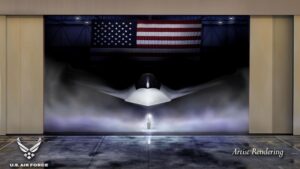 Congress
CongressHASC Adds Measures To NDAA Seeking More F-47, F/A-XX Details, Blocking E-7A Cut
The House Armed Services Committee on Tuesday adopted measures to its version of the next defense policy bill directing the Air Force and Navy to provide more detailed information on […]
-
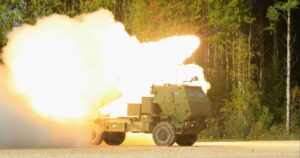 Army
ArmyArmy 25th Infantry Division Switching Out Howitzers for HIMARS
The U.S. Army’s 25th Infantry Division at Schofield Barracks, Hawaii plans to replace eight 105mm and six 155mm howitzers with 16 High Mobility Artillery Rocket System (HIMARS) launchers by Lockheed […]
-
 Advanced / Transformational Technology
Advanced / Transformational TechnologyStartup Developing Electromagnetic Launch System For Hypersonic Testing Nabs Seed Funding
Auriga Space has raised $4.6 million in a seed round and garnered $1.4 million in additional U.S. government funding to accelerate the development of an electromagnetic launch platform for “lab-scale […]
-
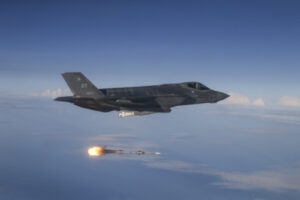 Uncategorized
UncategorizedHouse Armed Services Passes NDAA Measures on DoD, NNSA
The House Armed Services Committee Tuesday approved fiscal 2026 National Defense Authorization Act (NDAA) provisions to, among other things, create a new Rapid Capabilities Program within the National Nuclear Security […]
-
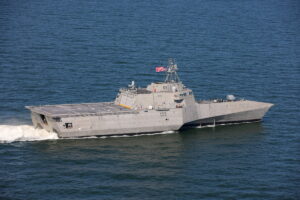 Navy/USMC
Navy/USMCAustal Delivers Last Independence-Variant LCS To The Navy
Austal USA on Friday delivered the 19th and last Independence-variant Littoral Combat Ship (LCS), the future USS Pierre (LCS-38), to the U.S. Navy. Austal built them and delivered this one […]
Tagged in: -
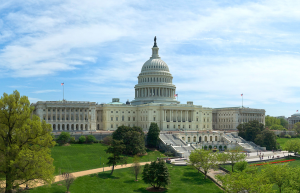 Budget
BudgetHouse Armed Services Committee Wants UAS Office Reporting To Deputy Defense Secretary
The House Armed Services Committee’s (HASC) proposed policy bill would direct the Joint Counter-small Unmanned Aircraft System Office (JCO) to report to the deputy secretary of defense while keeping the […]
-
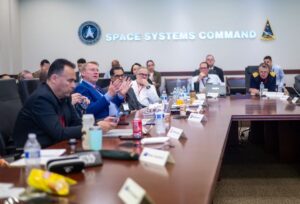 Space
SpaceHASC Bill Would Make TacSRT a ‘Program of Record’
The House Armed Services Committee’s (HASC) fiscal 2026 defense bill would require the Chairman of the Joint Chiefs of Staff to establish a Title 10 requirement for the tactical, surveillance, […]
Tagged in: -
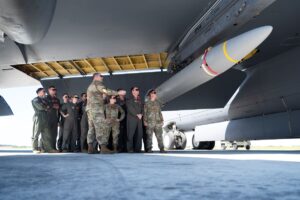 Air Force
Air ForceAccelerate HACM Production Ramp, HASC Advises USAF
The U.S. Air Force plan to field a limited number of RTX [RTX] Hypersonic Attack Cruise Missiles (HACM) by 2028 has led to a stated concern by the House Armed […]
Tagged in: -
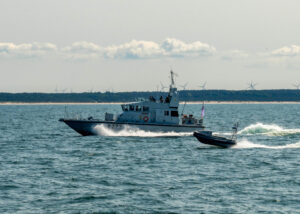 Navy/USMC
Navy/USMCNavy Used BALTOPS Exercise To Demonstrate USV Tactics, Evaluating Vessels
The head of a Navy task force focused on evaluating and using lower cost unmanned systems for 6th Fleet said recent testing at the Baltic Operations 2025 (BALTOPS) maritime exercise […]
Tagged in: -
Tuesday, July 15, 2025
- HASC Backs Army’s ATI Plans, While NDAA Draft Directs More Details On Proposed Cuts
- Saronic, Vigor Marine Partner Around Support For Autonomous Vessels At Scale
- Trump: NATO To Purchase ‘Billions’ In U.S. Weapons For Ukraine, Including Patriots
- HASC Releases NDAA Text With Nuclear Energy Working Group, Two-Site Pits
- DoD AI Office Awards Frontier AI Contracts For Workflow Needs
- Saildrone Envisions European Expansion After Baltic Sea Exercises
- BREAKING: Noem Terminates Eastern Shipbuilding’s Work For Third And Fourth OPCs

